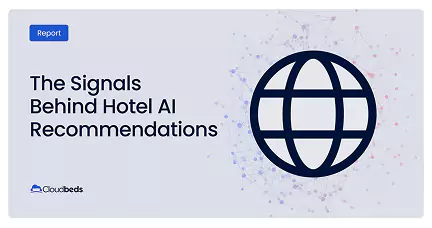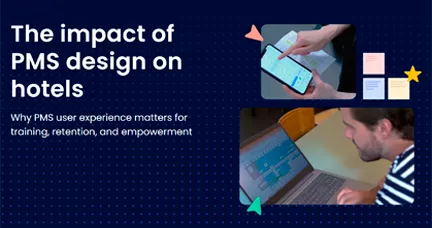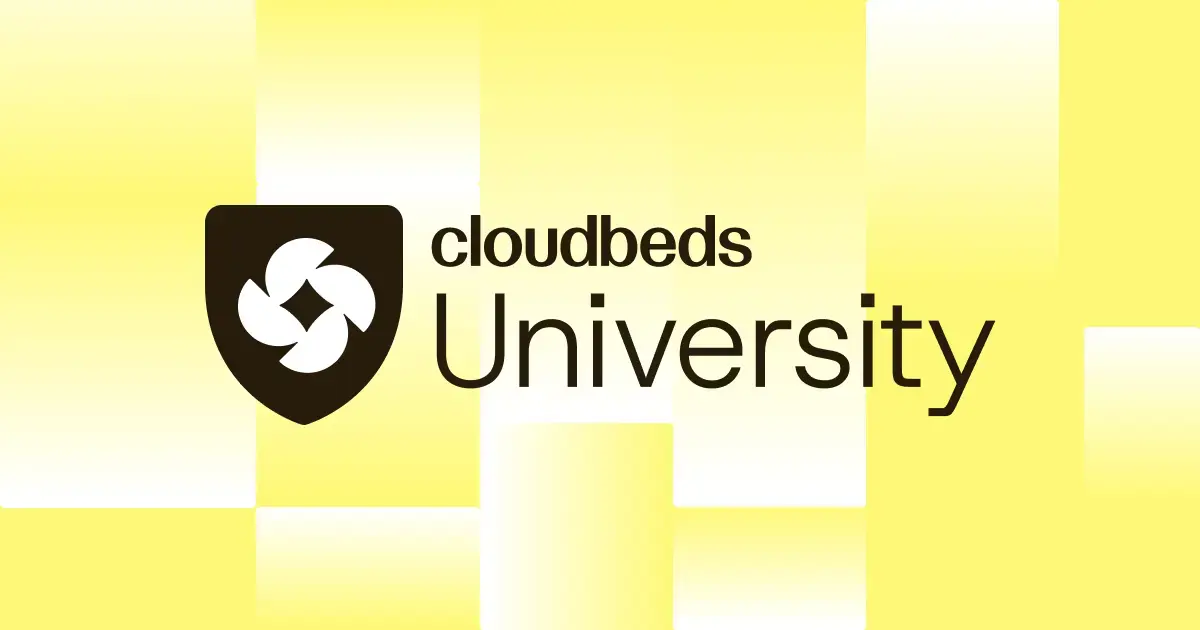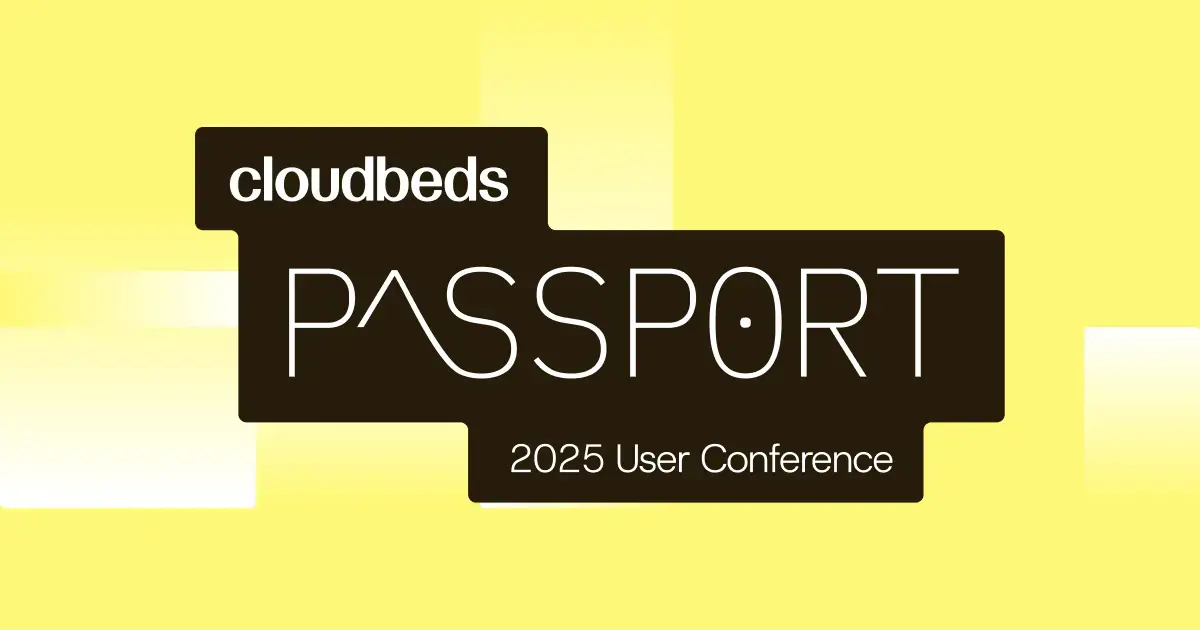AI is rapidly reshaping hotel operations, but not with flashy gadgets. The real magic is happening behind the scenes, where AI is transforming how hotels operate, making teams more efficient and guests happier.
By automating repetitive tasks, sharing the right information at the right time, and empowering your staff to deliver exceptional service, AI is becoming a powerful operational ally. Hospitality operator JJ King said it well, “AI isn’t just ChatGPT. It’s how we interpret data, automate tasks, and even how guests interact with our brands.”
AI isn’t here to take over. It’s here to take some behind-the-scenes weight off your shoulders.
Where automation makes the biggest impact
Hotel teams face a long list of daily demands. From juggling guest messages and maintenance issues to reworking schedules because of early check-in or late check-out requests, the coordination is non-stop.
Most of this coordination is still manual, reactive, and disconnected. Your maintenance team hears about a broken shower from an angry guest review instead of preventive monitoring. Housekeeping scrambles to accommodate last-minute early check-ins. The front desk struggles to track which requests are urgent and which are routine.
Used correctly, AI and automation help you stay proactive, not reactive. So all the right pieces are in line from the start.
AI across hospitality departments
AI enhances coordination, communication, and decision-making across your entire team. From the front desk to housekeeping and maintenance, here’s how AI is transforming day-to-day operations in practical ways.
Front office: Intelligent guest communication
AI can help your front desk team respond quickly and thoughtfully to every guest request or concern. AI sentiment detection and guest intent analysis can flag frustrated messages, escalate issues to managers before they become problems, or automatically prioritize urgent inquiries based on tone or topic.
How does that play out in the real world?
- 1. A guest checks in and realizes their shower isn’t working.
- 2. They send a message to the front desk staff, “We arrived less than an hour ago and already have an issue with our shower. Can you send someone up to fix it?”
- 3. AI can automatically detect the negative sentiment, so if the staff at the front desk is busy helping another guest, the message with a maintenance request can be escalated to the right person within minutes.
- 4. The request is handled quickly, and your guest goes back to enjoying every part of their curated stay.
Housekeeping: Automated cleaning coordination
Housekeeping operations are complex puzzles that shift throughout the day. Automation brings order to the chaos by dynamically updating cleaning schedules based on live reservation changes, guest readiness, and real-time task completion.
For example:
- A last-minute early check-in triggers a task reprioritization so beds are made and towels are restocked on time
- AI helps check for completion and guest readiness against your stated standards before marking rooms ready
- Housekeeping managers get real-time views of who’s cleaning what, and when, so nothing gets missed
AI-powered tools mean your team doesn’t have to scramble when three guests want to check in early, and you never have to worry about a room marked “ready” that doesn’t meet your standards.
Maintenance: Proactive problem-solving
Maintenance requests often come in reactively, from a guest complaint or a late handoff between teams. With the right automation in place, AI can connect guest messages to issues, trigger scheduled tasks, and enable predictive maintenance.
You can assign smart rules to automatically assign a maintenance task to an available staff member, notify the manager of the guest’s request, and inform the front desk so they can be prepared to share updates with the guest. Automation also allows you to track maintenance requests, reducing guest disruptions and extending equipment life.
Predictive maintenance uses AI to anticipate when equipment, like HVAC systems, is likely to fail. By analyzing data and usage history, powerful technology can alert staff and suggest tasks before small issues become big problems. That means hoteliers can avoid the nightmare of air conditioning going out in the middle of the busy season.
AI also helps hoteliers make smarter decisions when managing supplies and amenities, everything from lightbulbs to shampoo. While automation already enables basic tracking, AI takes it a step further by driving decisions that directly impact the bottom line.
Michael Brindley, General Manager of Five Star Management Group, realized these benefits after using automation for inventory tracking, “For one location, we were spending $3,000 every month just on guest supplies (i.e. toiletries), now we’re down to about $1,500. Overall, we’ve seen 30% cost savings just by being able to track all of our inventory.” Those savings can go directly back into building a better experience for your guests.
What makes hotel operations AI actually intelligent?
Not all tools are created equal. A generic auto reply doesn’t help if it doesn’t consider the guest’s specific context, or worse, if it gives the wrong information.
That’s why the most impactful tools use operational data and are connected to your operations. They pull in real-time data like:
- Reservation details (check-in time, length of stay, number of guests)
- Property information (Wi-Fi codes, amenities, maintenance history)
- Task status (cleaning complete, maintenance in progress, inspection pending)
- Task history
- Maintenance history
- SOPs and internal processes
- Context of the guest message
- Availability of staff and contractors, and even GPS-based location
When your AI has access to this kind of context, it can respond more intelligently and act more accurately.
Better service through smart automation
Hospitality is still, and always will be, a people-first industry. The right AI tools make your service more human, not less.
Many of the most time-consuming parts of hotel operations can be tackled by automation, because they’re repetitive, rule-based, and rely on data you already have. Things like:
- Reducing lag time between when a guest request is received and when an action is taken.
- Creating instant clarity by assigning the right task to the right team member at the right time.
- Allowing teams to scale without losing the quality of your service or burning out your staff.
- Supporting your staff by enabling them to spend time on meaningful work instead of administrative tasks.
AI built for modern hospitality teams
The hotels winning today aren’t just keeping up with guest expectations, they’re staying ahead of them. They’re using AI to anticipate needs, prevent problems, and create seamless experiences that guests remember.
Ready to see how AI can transform your hotel operations? Learn more about how Cloudbeds and Breezeway work together to elevate your guest experience while streamlining behind-the-scenes operations.
A post by Breezeway
Breezeway’s award-winning operations and guest experience platform helps thousands of hospitality operators increase efficiency, eliminate manual work, and boost service revenue. With our mobile app, tailored checklists, and automated workflows, companies have confidence that every room is guest-ready. Guest communication has never been easier with our Messaging, Guide, and Assist products. Book a Breezeway demo and take the first step towards elevating your hospitality operations.



